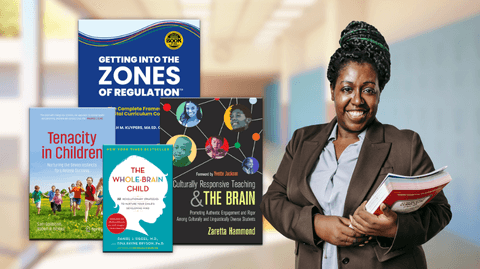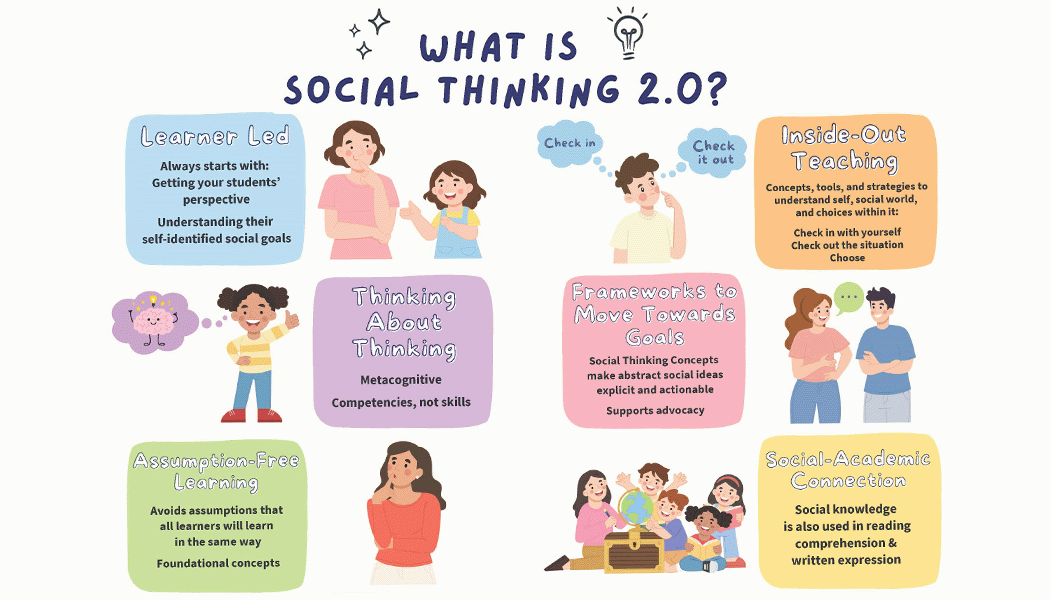Back-to-School 2025

Join us live on Sept. 18, 2025, 4:00 PM Pacific. Elevating Play Through Social Thinking: Cultivating Positive Self-Concept and Academic Success. Register for Free
Bundle Spotlight

The School Administrator Bundle: build a positive school climate from day one with this must-have bundle that includes essential tools to foster social, emotional, and academic learning. Shop Bundle.
Social, Organizational, Emotional, & Academic Learning Resources
The Social Thinking Methodology has been a guiding resource for schools, clinics, individuals, and families around the world for more than 25 years. Our work supports individuals' social, emotional & academic learning, whether neurotypical or Neurodivergent, with or without diagnoses. Our materials are helpful for students with solid to strong expressive and receptive language skills in mainstream and special education. They can be used across developmental ages to support the development of social competencies, flexible thinking & social problem solving to improve: conversation & social connection, executive functioning, friendship & relationship development, perspective taking, self-regulation, and Social Thinking Vocabulary. Help us protect the fidelity of this body of work and be informed about how you can/can’t use our materials considering our intellectual property, copyrights and trademarks.
- Products for All Ages
- Online Training
- Free Webinars
- Article Library
- Digital Products
- Visual Supports
Products for All Ages
Teachers, speech-language pathologists, clinicians, behavior specialists, and parents are using our expansive collection of curricula, books, games, and visual supports to improve social, emotional, and academic learning for all.
We take complicated social, emotional, and academic learning processes and teach them explicitly in a way that social learners of all ages can understand. Our work has helped over 2.5 million educators, clinicians & families around the world.
Bestsellers
Browse By Age
What is Social Thinking 2.0?

3 Distinct Definitions
We have a lot of information to share. Here are three ways to understand how we use the words "social thinking":
The Term
The Business
The Methodology
Click below to learn more!







